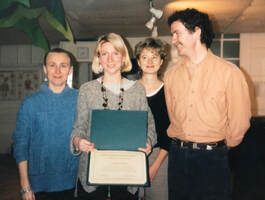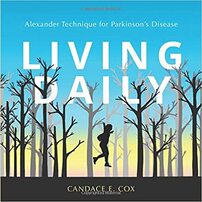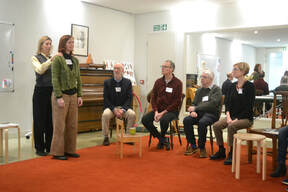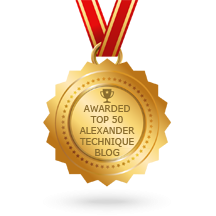
In normal times, touch and hands-on guidance are key components of learning the Alexander Technique. While I have been pleasantly surprised how much can be conveyed in a Zoom AT session, I confess I am itching to use my highly-trained hands again. Roll on April 12, when in-person AT lessons will be permitted once more. And swimming. And haircuts.










 RSS Feed
RSS Feed
